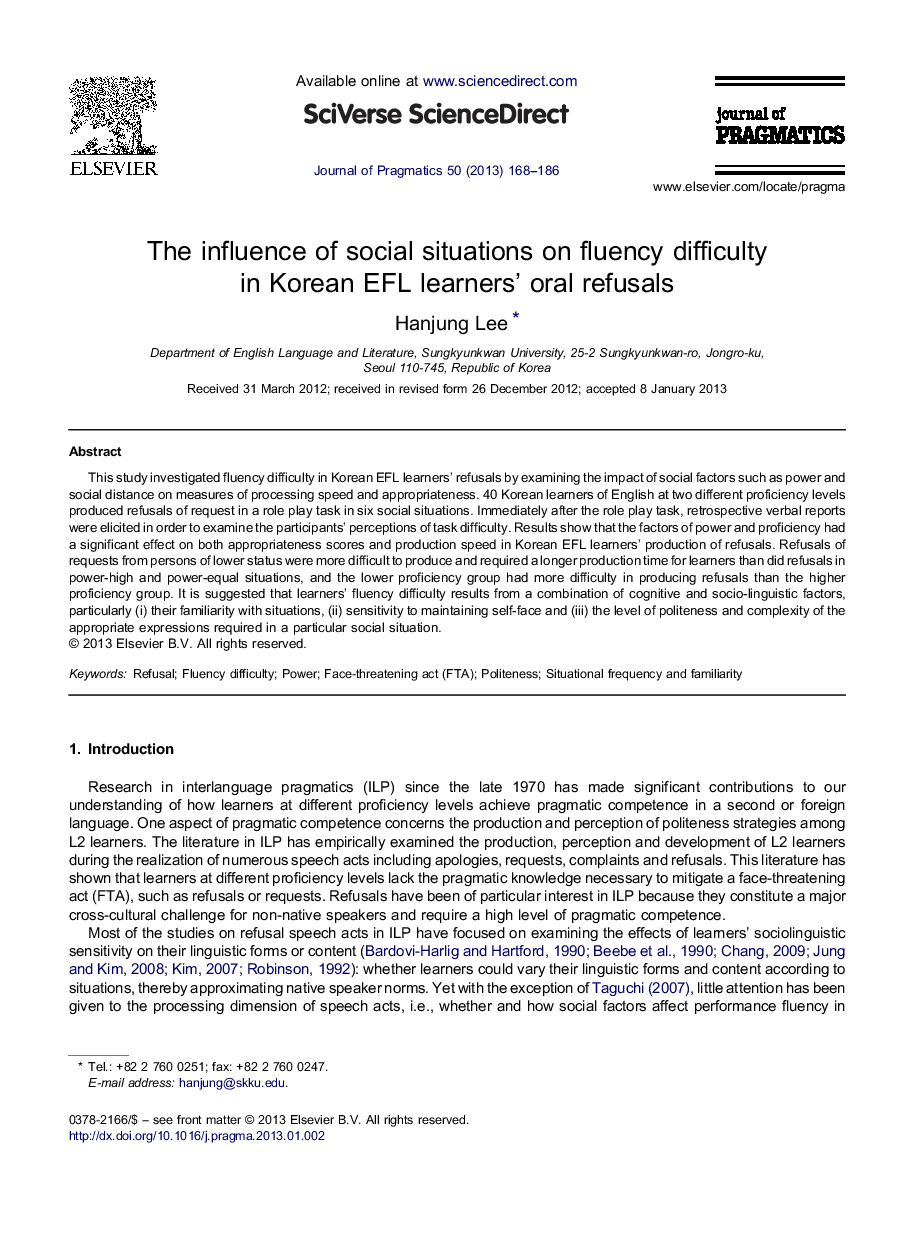| Article ID | Journal | Published Year | Pages | File Type |
|---|---|---|---|---|
| 932929 | Journal of Pragmatics | 2013 | 19 Pages |
This study investigated fluency difficulty in Korean EFL learners’ refusals by examining the impact of social factors such as power and social distance on measures of processing speed and appropriateness. 40 Korean learners of English at two different proficiency levels produced refusals of request in a role play task in six social situations. Immediately after the role play task, retrospective verbal reports were elicited in order to examine the participants’ perceptions of task difficulty. Results show that the factors of power and proficiency had a significant effect on both appropriateness scores and production speed in Korean EFL learners’ production of refusals. Refusals of requests from persons of lower status were more difficult to produce and required a longer production time for learners than did refusals in power-high and power-equal situations, and the lower proficiency group had more difficulty in producing refusals than the higher proficiency group. It is suggested that learners’ fluency difficulty results from a combination of cognitive and socio-linguistic factors, particularly (i) their familiarity with situations, (ii) sensitivity to maintaining self-face and (iii) the level of politeness and complexity of the appropriate expressions required in a particular social situation.
► Power and proficiency had a significant effect on appropriateness and production speed. ► Refusals from persons of lower status were most difficult to produce and required a longer production time. ► The lower proficiency group had more difficulty in producing refusals than the higher proficiency group.
